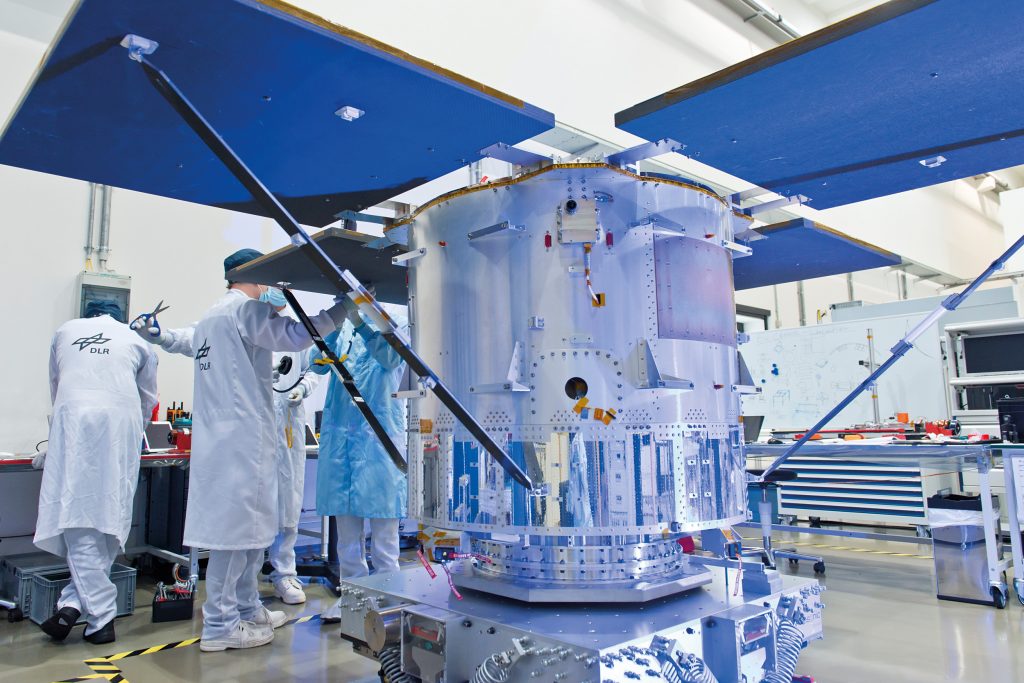Euglena Combined Regenerative Organic Food Production in Space
Astronauts in space must be supplied with oxygen, water and food. In order to produce and recycle these essential resources and thus also make them available for long-duration missions lasting several years, closed life support systems are required. The focus of the DLR mission Eu:CROPIS (Euglena Combined Regenerative Organic Food Production in Space) are tests on the long-term stability of a biological life support system for missions to the Moon or Mars. With the aid of the flter system developed by DLR called C.R.O.P.®, synthetic urine will be converted into a fertiliser solution for plants. A second system based on algae will be used to supply the entire system with oxygen and detoxify it as required.
Eu:CROPIS is intended to show that such a closed system can be operated and restarted under different gravitational conditions (Moon and Mars). Possible applications on Earth are zero-emission habitats in sensitive regions or closed living spaces in a hostile environment or in disaster areas, in mines or under water. It will also serve as a new method of fertilisation or fresh water preparation.
The Eu:CROPIS satellite will rotate at an altitude of 600 kilometres during its mission and in its interior space create frst the gravitational conditions of the Moon for six months and then Mars gravity for a further sixmonth period. Tomato seeds observed by 16 cameras will germinate and produce small space tomatoes. The essential aids that make this possible will be carried on board. A collectio of microorganisms in a trickle filter will ensure that fertilisers are created from synthetic urine for the tomato plants. Unicellular algae will protect the closed system against excess ammonia and supply it with oxygen. LED lights will provide a day and night rhythm for the algae and tomato seeds and a pressurised tank will simulate Earth’s atmosphere.
German Aerospace Center (DLR)
Hartmut Müller · E-Mail: hartmut.mueller@dlr.de · DLR.de/en
